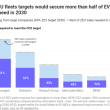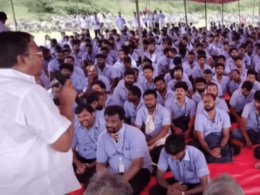Deloitte Australia will refund part of the AU$440,000 ($288,428) it was paid by the federal government after a report it produced was found to contain apparent AI-generated errors, including fabricated legal quotations and references to non-existent academic papers.
The 237-page report, commissioned by the Department of Employment and Workplace Relations and published in July, was intended to review the department’s use of automated penalties within the welfare system. A revised version was released on Friday after Chris Rudge, a University of Sydney researcher in health and welfare law, alerted the media that the report was “full of fabricated references.”
Following a review, Deloitte confirmed that “some footnotes and references were incorrect,” the department said in a statement on Tuesday. “Deloitte had agreed to repay the final instalment under its contract,” it added, noting that the refund amount would be disclosed once repaid.
The revised version of the report now includes a disclosure stating that a generative AI system, Azure OpenAI, was used in its preparation. It also removes a fabricated quotation attributed to a federal court judge and several references to fictitious research papers.
Rudge said he identified around 20 errors in the initial version, including a fabricated book attributed to a Sydney University professor, which he described as “preposterous.” He said that misquoting a judge was a particularly serious error in a report that assessed the department’s legal compliance.
“They’ve totally misquoted a court case, then made up a quotation from a judge,” he said. “That’s about misstating the law to the Australian government in a report they rely on. So I thought it was important to stand up for diligence.”
Senator Barbara Pocock, the Australian Greens’ spokesperson on the public sector, criticised the firm’s conduct, saying Deloitte should refund the full AU$440,000. “Deloitte misused AI and used it very inappropriately: misquoted a judge, used references that are non-existent — the kinds of things that a first-year university student would be in deep trouble for,” she told ABC.














